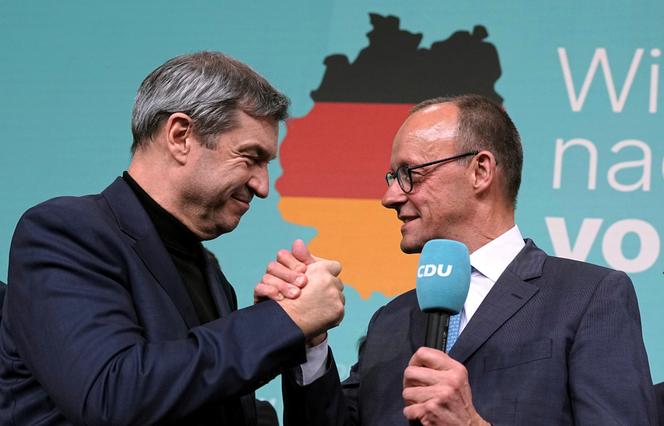


It was a symbol that said a lot about this election. On Sunday evening, posters of Alice Weidel, the German far-right candidate, were plastered in front of the entrance to the headquarters of the Christian Democratic Union (CDU) in Berlin, appearing to tower over the guests and activists waiting outside. A warning for the conservative party, which, although victorious in Germany's early elections on February 23 with 28.6% of the vote, has seen the gap between it and the Alternative for Germany (AfD) party almost halved since 2021. The far-right party is now the country's second-largest political force, with 20.8% of the vote, twice as much as four years ago.
In 2021, Germany went to bed on election night not knowing who the future chancellor would be, such was the closeness of the results. This time, the population had known for several weeks that Friedrich Merz, the president of the CDU, who had been the favorite in the polls since the start of the campaign, would lead the country. But how and who with? "I'm aware of the scale of the task ahead of us," said a half-relieved Merz on Sunday evening from the Konrad-Adenauer-Haus, the CDU headquarters in Berlin. "I know it won't be easy," he added, before addressing a word to his "political rivals" with whom "it is above all a question of recreating as quickly as possible a government capable of taking action in Germany, with a good parliamentary majority."
You have 83.24% of this article left to read. The rest is for subscribers only.
